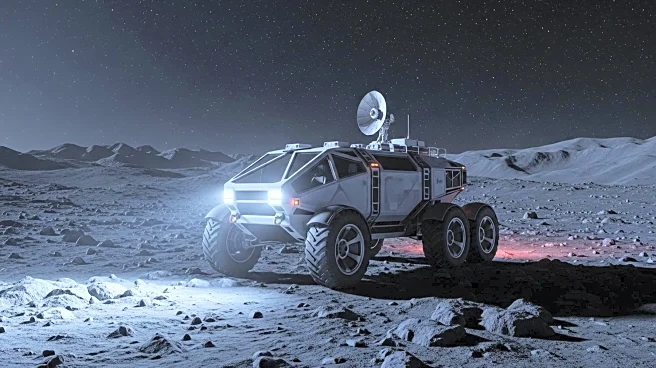What's Happening?
Lunar Outpost is actively competing for NASA's Lunar Terrain Vehicle (LTV) Services contract, which is part of a program worth up to $4.6 billion over 10 years. The company has developed rover prototypes that can be driven by astronauts, remotely operated, or travel autonomously. These prototypes have undergone extensive testing in Colorado, leading to significant design upgrades. Despite setbacks, such as the failure of the Mobile Autonomous Prospecting Platform (MAPP) rover to operate on the moon due to a landing mishap, Lunar Outpost remains optimistic. The company is one of three selected by NASA for initial design studies, and it has submitted proposals for the next phase of the LTV program, which will determine the rover design for future Artemis missions.
Why It's Important?
The selection of a Lunar Terrain Vehicle is crucial for NASA's Artemis missions, which aim to further explore the moon and transition NASA's role from operator to customer in a growing lunar economy. The LTV will be instrumental in transporting astronauts across the lunar surface, and the contract represents a significant investment in lunar exploration technology. The competition among companies like Lunar Outpost, Astrolab, and Intuitive Machines highlights the increasing involvement of private firms in space exploration. Success in securing the contract could lead to substantial business opportunities beyond NASA, as companies seek other customers for their rovers.
What's Next?
NASA is expected to make a decision on the LTV contract later this year, potentially selecting one or more companies to develop and demonstrate their rover designs. The chosen company will provide services for future NASA missions, and the decision will influence the direction of lunar mobility technology. Companies are also exploring commercial opportunities for their rovers, with potential customers ranging from research institutions to private enterprises interested in lunar exploration.









